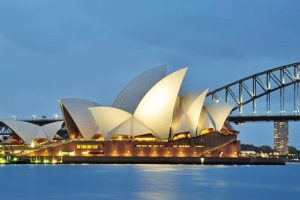
Regulators in Australia have amended the country’s drug law and removed a prescription requirement for some CBD products, paving the way for greater consumer access but saddling CBD makers with efficacy requirements that threaten to create barriers to market entry.
The Therapeutic Goods Administration (TGA) said Tuesday it was amending the country’s Poisons Standard to downschedule CBD preparations from Schedule 4 (Prescription Medicine) to Schedule 3 (Pharmacist Only Medicine).
Starting in February, low-dose CBD products for adults can be sold over-the-counter by a pharmacist without a prescription, so long as those products receive approval by the TGA and are included on the Australian Register of Therapeutic Goods (ARTG), the TGA said.
The TGA’s final decision to downschedule CBD products allows a maximum dose of 150 milligrams a day, up from the 60 mg/day dose recommended in the agency’s interim decision back in September.
The dosage increase was the result of “further consideration of safety information, the public submissions on the interim decision and the advice of the Joint Committee of the Advisory Committees for Medicines Scheduling and Chemicals Scheduling at the November 2020 meeting,” the TGA wrote.
Australia-based hemp and CBD nutraceutical maker Elixinol welcomed the TGA decision but noted that the TGA’s decision to keep CBD on Schedule 3 – and therefore require data that proves the product’s safety, quality and efficacy – was not in step with the agency’s peers in Europe.
The European Commission, the executive arm of the European Union, confirmed last month that products containing hemp-derived CBD should not be regulated as a narcotic and could seek market authorization as a food.
“The good news is that more people will have access to safe and effective CBD products now,” Elixinol CEO Oliver Horn told Hemp Industry Daily. “However, the TGA’s approach is not reflective of the overall global trend … or the regulatory frameworks recently confirmed in Europe,” where “product suppliers have to demonstrate stringent safety standards but not efficacy.”
Melissa Benson, an advisory board member at Applied Cannabis Research in Australia, told Cannabiz that being registered as a Schedule 3 preparation in Australia requires efficacy data – something that would “support further clinical research in the area of low-dose CBD medicines” but “may … be challenging to produce at a low dose.”
Horn agreed that proving efficacy for specific indications would prove challenging and “increase the barriers to entry into the Australian market.”
“The consequence is likely to be that the vast illegal supply of CBD products from online suppliers into Australia will continue to exist simply because its more convenient, easily accessible and likely to be cheaper,” the CEO said.
“In our view, the TGA ruling misses an opportunity to create a compliant, legal and buoyant domestic CBD market by demanding proof of efficacy and over-regulating the market,” Horn said.
Monica Raymunt can be reached at [email protected].

